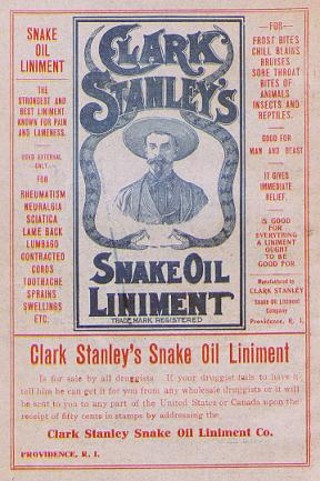Dr. Smith's Patented Tort Reform
Putting the claim that limiting medical liability will save health care
By Richard Whittaker, 1:49PM, Mon. Sep. 21, 2009

Congressman Lamar Smith, R-Texas, has tried twice in recent years to pass national tort reform, restricting the right of patients to sue incompetent or negligent medical professionals. Now he's trying to tack it onto the health care reforms grinding their way through Congress.
So on Friday afternoon, he held a press conference in the front foyer of St. David's Hospital. Smith had two simple contentions: One, having lower malpractice premiums will encourage more doctors to practice; and two, it will translate into lower medical insurance premiums.
To back him up, he had several doctors from local medical groups including Dr. Howard Marcus, chairman of the Texas Alliance for Patient Access (funny how, for what sounds like patients' rights group, its board of directors are a mixture of doctors and insurance company executives: Including, surprise, surprise, treasurer James D. Hinton from medical liability insurers Heath Care Indemnity, Inc.). But looking behind the white coats, did Smith's arguments stand up?
Question: Smith's whole presentation was predicated on the idea that frivolous medical lawsuits are rampant, and he said that "a couple of weeks ago the Harvard School of Pubic Health came out and said that 40% of all lawsuits against medical personnel are frivolous." Won't tort reform result in a fairer system by cutting down on waste?
Answer: Actually, what that school said in 2006 in a report published in the New England Journal of Medicine was that the overwhelming majority of suits and the associated costs are from cases with merit. It also found that the biggest inequity is not doctors paying for something they didn't do, but cases where there was liability, but the victim got no recompense.
Question: So has Texas tort reform translated into lower health insurance premiums?
Answer: Er, no. A series of state-by-state studies by Families USA shows that, nationwide, insurance premium costs have inflated well beyond salaries and there's pretty much no difference between the states that have enacted liability limitations and those that haven't. So while doctors' liability premiums have dropped 30% to 50% since tort reform was passed 2003, since 2000 job-based health insurance premiums in Texas have risen 70% for individual coverage and 92% for family coverage.
Question: Smith said that if tort reform is enacted, and doctors "save those tens of billions of dollars, then we will be able to cover those people that don't have health care insurance." Has tort reform in Texas translated into better coverage?
Answer: Again, no, since a quarter of all Texans are uninsured (and don't forget to add on the under-insured). Howard noted that applications to practice medicine have increase since tort reform, "so many that the Texas [Medical] Board couldn't keep up with it, and licenses took a year to get." As anyone who has spent any time covering Texas state politics can tell you, regulating and licensing bodies are generally underfunded and overstretched, and the medical board is arguably no exception. So even though Smith could tout the fact that 14,000 doctors entered or re-entered practice in Texas since tort reform was enacted in 2003, that doesn't help the people that can't afford to see them. And forget the idea that this is all young professionals that think they are bullet proof. According to the Texas Medical Association, the biggest determining factor in a lack of coverage is poverty. Also, forget the idea that it's just illegal immigrants: While non-citizens as a group (including legal and illegal migrants) are more likely on an individual basis to be uninsured, 73% of uninsured Texans are US citizens.
Question: But can't some of those saving be passed on as charity work for the indigent? As Smith said, there is $600 million more in charity care in Texas hospitals since 2003, up 25% in six years.
Answer: "Are there no prisons? Are there no workhouses?" Put aside the inherent implication that the system would depend on overcharging other patients to subsidize doctors' good deeds, and the fact that, working from the Consumer Price Index, baseline inflation between 2003 and 2008 was 17% anyway. Charity is all fine and good: But the idea that up to a quarter of Texas citizens might end up depending on the largesse of the medical establishment for their health is, frankly, barbaric.
Question: So why not go down the universal health care route, where the medical part of any suit is generally moot? Take the UK's National Health Service: As the medical care provider of first resort, they will generally provide for any ongoing or emergency care.
Answer: Marcus noted that there is medical malpractice litigation in the UK, but having universal care and having malpractice law are, he said, "apples and oranges issues." So how does the NHS system work? If there are complaints against individuals, then they are dealt with through either the NHS or the General Medical Council's complaint's procedure. If there is a civil liability, it's whichever NHS entity the medical practitioner works for that is liable, not the doctor or nurse in question. Those larger entities pool their risk through the NHS Litigation Authority. Private practitioners get their own malpractice insurance, but then again the majority of private practices are small and specialize in elective, not emergency, work. The real upshot, Marcus said, was that such a system would have to be much bigger in the US "because the litigation in Britain is never like it's been here."
And why would that be? As one attendee noted, the difference between America and the UK is that the UK has a health care system, while the US has a health care market.
Which raises an interesting point. St. David's Medical Care Chief Medical Officer Steve Berkowitz said, "The more we can do things like this, the less distracted the physician is with the issues of litigation the more time we can spend doing what we do best, and that is taking care of our patients." Wouldn't having a universal health care system, where doctors aren't also forced to be business executives and lobbyists, do the same thing?
Got something to say on the subject? Send a letter to the editor.
A note to readers: Bold and uncensored, The Austin Chronicle has been Austin’s independent news source for over 40 years, expressing the community’s political and environmental concerns and supporting its active cultural scene. Now more than ever, we need your support to continue supplying Austin with independent, free press. If real news is important to you, please consider making a donation of $5, $10 or whatever you can afford, to help keep our journalism on stands.
Jordan Smith, Jan. 25, 2013
Richard Whittaker, May 31, 2011
Richard Whittaker, Jan. 9, 2014
April 19, 2024
April 19, 2024
Healthcare, Lamar Smith, Health Insurance, Medical Malpractice, Liability, NHS












